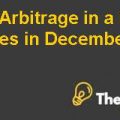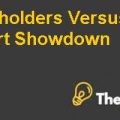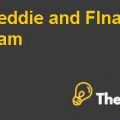
ACCOUNTING THEORY Useful or Useless
Introduction
Language of business or commonly referred as Accounting is defined as measures taken by an organization to convey accurate information about its economic activities to its variety of users that include: investors, creditors, management and regulators. This information can be in the form of records or book keeping or financial statements like balance sheet, income statement, statement of cash flows or retained earnings. Accounting has been divided in many fields from which some are described below (Underdown B.1991.)
- Financial Accounting: is described as the process to report an organization’s financial information to external users of that information which includes investors, regulators and suppliers. This information is presented in the form of financial statements and is prepared in accordance with Generally Acceptable Accounting Principles (GAAP).
- Management Accounting: is more focused on the measurement, analysis and reporting of information that can help managers in making better decisions and achieving organizational goals. This type of accounting procedure produces futuristic reports based on the cost benefit analysis performed on the current financial information of the company, which does not require the pursuance of Generally Acceptable Accounting Principles (GAAP) (Jim Xie. 1994).
- Auditing: is the unbiased critical evaluation and scrutiny of the financial statements of an organization. It is done in order to eradicate any element of malpractice and fraud in the company’s bookkeeping as well as to give it a clean chit. This will be used by an organization to reinforce the trust of its investors on it. The auditor critically examines the financial position of the company in accordance with GAAP and provides a fair and unbiased verification of its accounts (Steven. 1975).
Accounting Theory
Accounting theory is the logical reasoning behind the setting of broad principles that are described as the general frame of reference through which accounting practices can be evaluated and new practices and procedures can be developed. The possibility of an accounting theory was very well emphasized by McDonald (1972) through the description of the three elements that must be present to formulate an accounting theory. The three elements are as follows:
- Encoding of a phenomena to have symbolic representation.
- Manipulation or combination according to rules.
- Translation back to real-world phenomena.
All the above points are necessary and present in the accounting theory. While the elements have been told, approaches in formulating accounting theory must also be discussed to give a good idea about the origination of the theory. Hence, traditional and new approaches are being discussed, which are further divided into sub parts (Gibbons, Robert. 1998).
Traditional Approaches
Traditional approach covers two aspect of an accounting theory specifically, non-theoretical and theoretical. Non-theoretical approaches to accounting theory are concerned with developing the theory or accounting techniques and principles that will be helpful to users, particularly to decision makers. While theoretical, is the opposite and can be divided into sub parts, which are given as under; (Richard Lambert, 2001.)
- Deductive Approach: For a theory to develop some basic deductions in the form of propositions, premises and assumptions must be made in order to logically conclude the subject of accounting principles. The theory is tested by determining whether its results are acceptable in practice or not.
- Inductive Approach: Empirical testing is required to check the authenticity of this approach, which can be derived through sufficient observations that support it. This is done to observe the phenomena created by the application of accounting principles and move towards obtaining a generalized conclusion.
- Ethical Approach: Revolves around recognizing the core values which must be related in creating the accounting theory and describing the moral and ethical code of conduct. This must be applied while using the accounting theory.
- Sociological Approach: Reflects the moral and ethical values of the society, which must be upheld while formulating an accounting theory and for the business to apply while keeping in mind the socio-cultural environment in its surrounding.
- Economic Approach: This approach focuses on general economic welfare. Thus, accounting principles and techniques are evaluated for acceptance depending on their impact on the national economy.
- Eclectic Approach: Is a combination of all the approaches, which are currently identified in the accounting theory. This approach has also paved the way towards the development of new approaches in the accounting theory.
New Approaches
New Approach combines both conceptual and empirical reasoning in order to formulate and verify the accounting framework. These approaches are as follows;
- Events Approach: was developed in 1969 by George Sorter and was structured to provide information about relevant economic events that might be useful in a variety of decision models.
- Behavioral Approach: relates human behavior to complex decision making in accounting. This approach assesses the behavior of the person who is taking the decision based on the accounting information provided and the behavior of the person who is providing the information.........................
This is just a sample partial case solution. Please place the order on the website to order your own originally done case solution.













